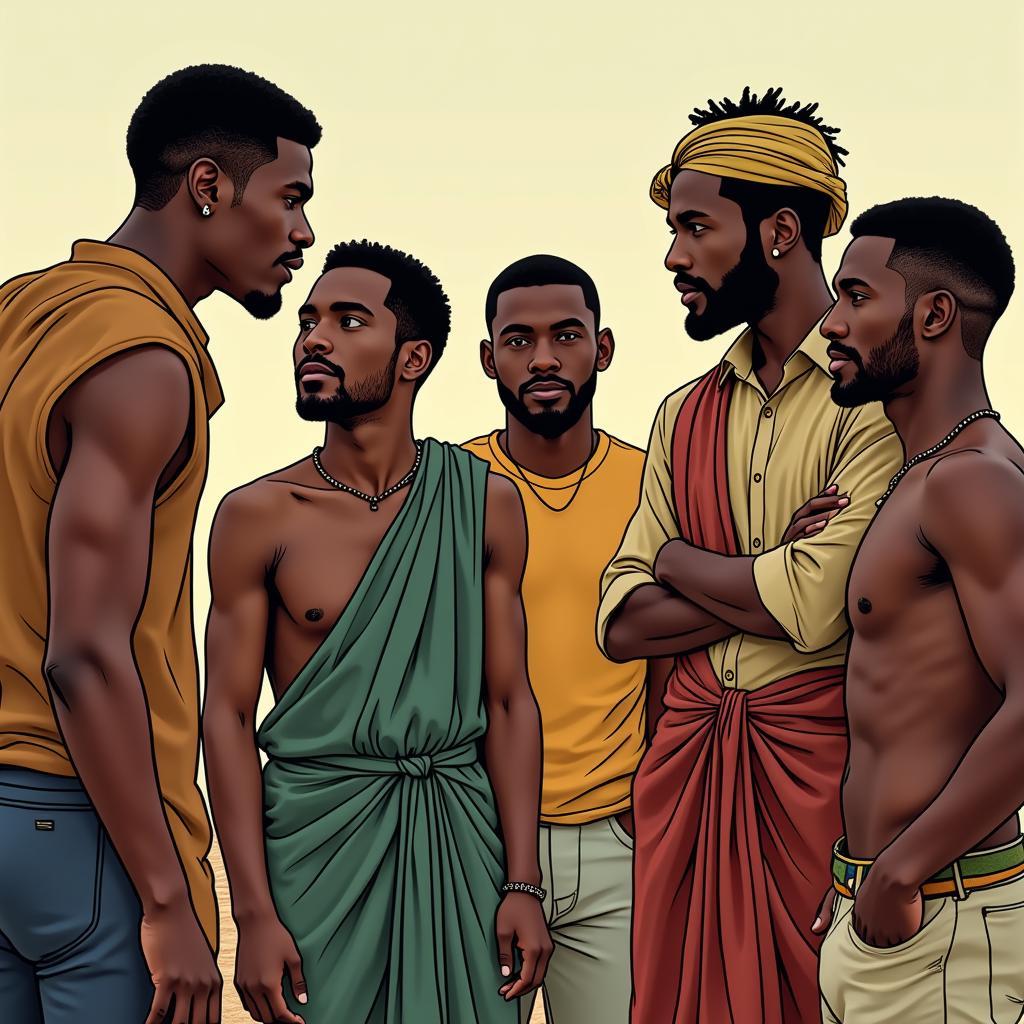African Diaspora Literature Definition: Exploring the Rich Tapestry of Written Expression
The African diaspora, a term encompassing the descendants of Africans who were forcibly migrated from their homelands, has left an indelible mark on the world, particularly in the realm of literature. This vibrant literary tradition, known as African diaspora literature, offers a multifaceted lens through which to understand the experiences, struggles, triumphs, and cultural identities of people of African descent across the globe.
Defining African Diaspora Literature
African diaspora literature encompasses a vast body of written works that stem from the experiences, perspectives, and histories of people of African descent living outside of the African continent. This includes works written by authors of African heritage residing in the Americas, Europe, the Caribbean, and other parts of the world.
Key Characteristics of African Diaspora Literature
While diverse in themes and styles, African diaspora literature shares several key characteristics:
- Focus on the African Diaspora Experience: These works often center around the unique experiences of displacement, migration, racism, and cultural identity that are inherent to the African diaspora.
- Exploration of African Heritage: Authors often delve into their African heritage, exploring ancestral roots, cultural traditions, and the impact of colonialism on their ancestral lands.
- Examination of Intersectional Identities: These texts often address the complex intersections of race, gender, sexuality, and class within the African diaspora experience.
- Challenges and Triumphs: African diaspora literature often explores the challenges faced by people of African descent while simultaneously celebrating their resilience, strength, and cultural contributions.
- Diverse Genres: From novels and poetry to short stories and plays, African diaspora literature is represented in a wide range of genres, reflecting the multifaceted nature of its themes and perspectives.
The Significance of African Diaspora Literature
African diaspora literature serves as a powerful tool for:
- Giving Voice to the Marginalized: It provides a platform for the experiences and narratives of people who have historically been marginalized and silenced.
- Preserving African Culture and History: It helps to preserve and share African cultural traditions, histories, and perspectives beyond the borders of the African continent.
- Promoting Understanding and Empathy: By exposing readers to the diverse experiences of people of African descent, it fosters empathy and promotes intercultural understanding.
- Challenging Stereotypes and Prejudices: It challenges racist stereotypes and prejudices by showcasing the rich diversity and humanity of the African diaspora.
- Inspiring Social Change: It often serves as a vehicle for social commentary, calling attention to injustices and advocating for social change.
Major Themes in African Diaspora Literature
Here are some of the most prevalent themes explored in African diaspora literature:
- Migration and Displacement: The forced migration of Africans during the transatlantic slave trade and subsequent migrations to various parts of the world are central themes in many works.
- Identity and Belonging: The search for identity and a sense of belonging in a world that often marginalizes them is a constant struggle for characters in these texts.
- Race and Racism: African diaspora literature confronts the reality of racism and its impact on the lives of people of African descent.
- Cultural Heritage and Tradition: Authors often explore the role of African cultural heritage in shaping their identities and navigate the complexities of preserving traditions in new environments.
- Gender and Sexuality: Works by African diaspora authors explore the intersections of race, gender, and sexuality, examining issues of patriarchy, sexism, and LGBTQ+ experiences within the African diaspora.
- Resistance and Empowerment: Many texts celebrate the resistance and empowerment of people of African descent in the face of oppression and adversity.
Prominent Figures in African Diaspora Literature
Professor John M. Mbiti:
“The literature of the African diaspora is essential to understanding the richness and complexity of human experience. These texts offer invaluable insights into the shared struggles and triumphs of people of African descent, while also illuminating the enduring power of cultural heritage and resilience.”
Professor Ama Ata Aidoo:
“African diaspora literature is a powerful tool for reclaiming our narratives and challenging the dominant Western perspectives. It is a testament to the creativity and resilience of our ancestors, and it continues to inspire new generations of writers and readers.”
Conclusion
African diaspora literature is a vibrant and dynamic field that continues to evolve and resonate with readers worldwide. It provides a valuable lens for understanding the complexities of the African diaspora experience and its impact on the world. By exploring themes of identity, belonging, resistance, and cultural preservation, it offers profound insights into the human condition and fosters empathy and understanding across cultural divides.
FAQ
1. What are some examples of African diaspora literature?
Some well-known examples include “The Bluest Eye” by Toni Morrison, “Beloved” by Toni Morrison, “Their Eyes Were Watching God” by Zora Neale Hurston, “The Famished Road” by Ben Okri, and “Half of a Yellow Sun” by Chimamanda Ngozi Adichie.
2. What are the major literary movements within African diaspora literature?
Some notable movements include Black Arts Movement, Negritude, and Postcolonial Literature.
3. How can I learn more about African diaspora literature?
You can explore online resources, libraries, bookstores, and university programs dedicated to African diaspora studies.
4. What are some important themes to consider when analyzing African diaspora literature?
Key themes to consider include identity, migration, racism, cultural heritage, and resistance.
5. What are some ways to engage with African diaspora literature?
You can read works by African diaspora authors, attend literary events, participate in book clubs, and support organizations dedicated to promoting this literary tradition.




